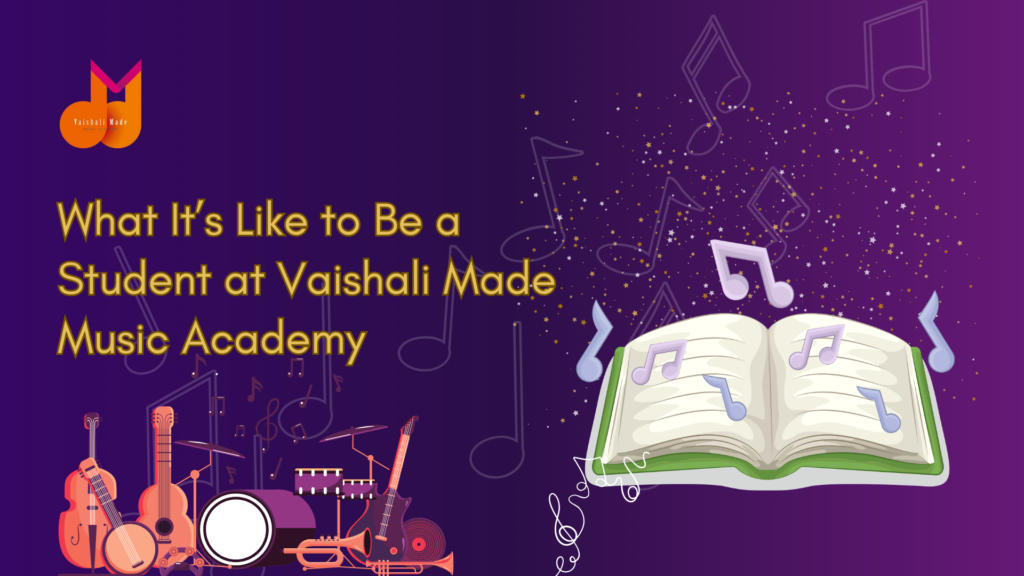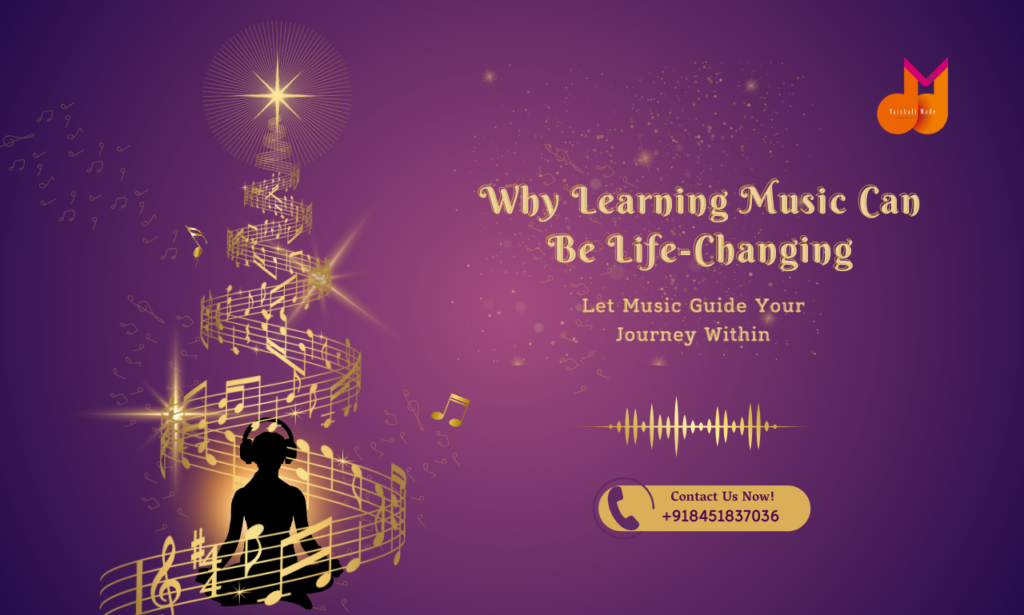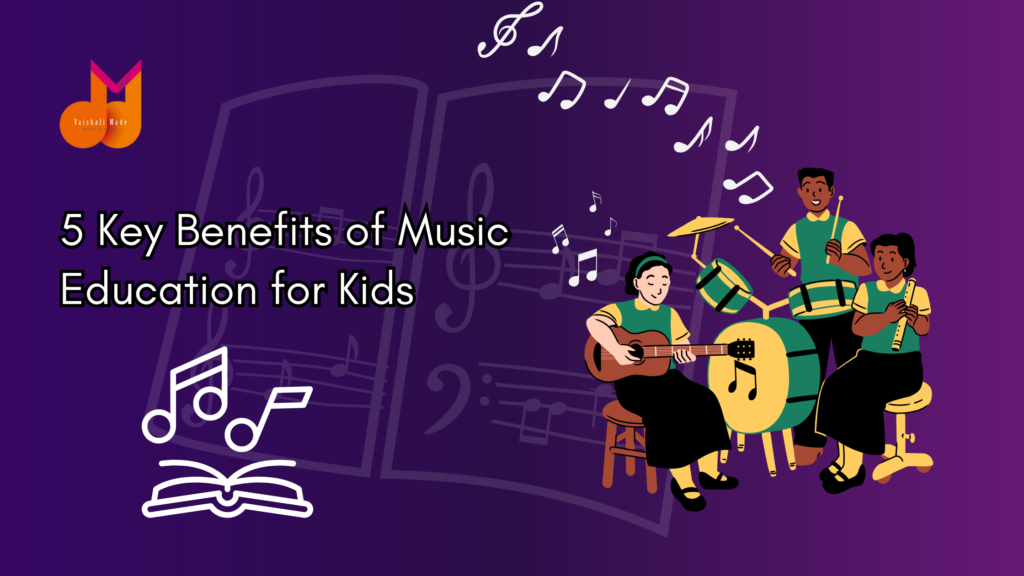What It’s Like to Be a Student at Vaishali Made Music Academy
Are you a music lover looking for a supportive, enriching environment to develop your skills? Vaishali Made Music Academy, located in the heart of Goregaon, offers students a chance to transform their passion for music into a fulfilling journey of learning and growth. Our music academy in Goregaon caters to all levels of learners, from absolute beginners to advanced musicians, providing expert mentorship, cutting-edge facilities, and a vibrant community. If you ever wondered what it would be like to be a student here, this is the in-depth look into the unique experience we offer Why Vaishali Made Music Academy? In a metropolis as pulsating as Mumbai, there are hundreds of schools to learn music, and Vaishali Made Music Academy stands out for high-quality education and personalized direction. Founded by Vaishali Made, an experienced musician and teacher, it goes beyond the basics for students to find the material, mentorship, and confidence necessary to achieve their goals. So when you join the music classes in Vaishali Made Music Academy, you are learning from someone who is invested very heavily in your personal growth as well as your artistic growth. Our founder, Vaishali Made, has refined her teaching methodology over time so that every student feels valued, seen, and supported. Small class sizes are important because they enable one-to-one attention-an indispensable factor for meaningful progression in the learning process because students’ individual abilities and objectives are considered. The impact of the academy is seen directly in the experiences of its own students. Many will acknowledge that they have really evolved not only as a musician but as an individual due to their time here. At whatever professional level it achieved, whether it had gained confidence in their playing by being part of this establishment, Vaishali Made Music Academy has always added to that journey for people. Diverse Programs Customized to Every Level One of the USPs of Vaishali Made Music Academy is providing programs for every step in a student’s musical career. Music, as it is a deeply personal endeavor, brings students with very unique experiences, goals, and learning styles. For that reason, our Goregaon classes have been split into three broad levels: Beginner Classes: For a newcomer, beginner classes that address rhythm, pitch, and some basic technique is designed for those who are just starting a study of music- this building foundational level is based on basic skills to make them comfortable. Intermediate Classes: These are classes for those students that have some idea about the music and would polish, refine, and extend. More complex concepts in musical are introduced to the student in intermediate levels and started exploring styles and techniques extending their repertoire, hence a build-up in confidence is developed. Advanced Classes: Advanced classes are offered for serious musicians who wish to take their craft to perfection. Advanced classes emphasize very high-level instruction in music theory and performance techniques as well as some aspects of composition. The work emphasizes both precision and expression. Students work closely with instructors to fine-tune their skills and prepare them for public performances. The academy provides programs that encompass all elements of music, including vocal and instrumental training, music theory, and stage presence. The curriculum is prepared to help the students become confident in every aspect of their musical journey. Our flexible curriculum will allow the students to find their rhythm, moving at a comfortable and natural pace. What to Expect at Vaishali Made Music Academy A music class at Vaishali Made Music Academy is structured to maximize learning in an engaging and supportive environment. Each session begins with a series of warm-up exercises tailored to the day’s focus—be it vocal training or instrument practice. For singers, it may be scales and breathing exercises. Instrumentalists could tune and do finger exercises. These warm-ups get the students ready in terms of physical and mental preparedness for class. It sets the tone for a productive session. Following warm-ups, the students would participate in skill-building activities where they might practice a new scale, learn part of a song, or do rhythmic exercises. The academy promotes an active learning environment in which questions are encouraged and full participation is expected. This makes learning both accessible and enjoyable in a lively atmosphere. At the end of every class, the instructors give students constructive feedback to help them understand improvement and how they can improve themselves. These feedback sessions are important for self-awareness and helping students to feel ownership in their learning process. The structure of the class involves warm-up, skill building, interactive practice, and feedback that is the core of every class and designed to ensure growth for every student. State-of-the-Art Learning Environment and Facilities Our music academy in Goregaon believes that the right environment tends to foster a person’s creativity and focus. Vaishali Made Music Academy has carefully designed facilities to create a space where students can foster ideas and practice. Our classrooms are equipped with the latest instruments and acoustically designed practice rooms to promote the overall progress of our students. In addition, electronic learning and recording gear will allow students to gain the technical aspect of making music-the sound that results in creating something from nothing or experimenting with the sound that is wanted. We ensure our academy makes the students feel safe while providing an ambiance that calls for comfort in our large space. Our music and our setup, in whatever we do, promote creation, concentration, and also self-expression. We work with or on our instruments as a team or otherwise in the same comfortable environments. Regular Feedback through One on One Mentorship One of the reasons Vaishali Made Music Academy stands out is through personalized mentorship. Here, every student receives one-on-one attention from the instructors who really care for their growth. In individual mentorship, instructors offer feedback tailored specifically to the strengths and areas of improvement for each student. These mentoring sessions are much more than just correction; it is an integral part of a student’s journey. Personalized feedback helps set clear, achievable goals







